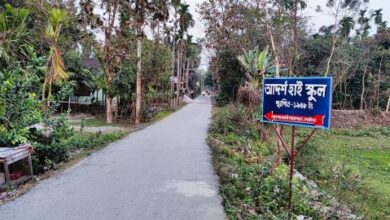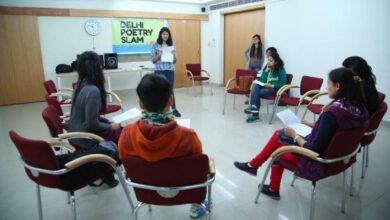Sankardev & Assamese nationalism

 Who are Assamese? Who is the modern architect of Assam? These questions often arise when we talk about ethnicity and identity. There is no doubt that the 15th-century scholar and saint, Sankardev, is the architect of Assam.
Who are Assamese? Who is the modern architect of Assam? These questions often arise when we talk about ethnicity and identity. There is no doubt that the 15th-century scholar and saint, Sankardev, is the architect of Assam.
However, there is a problem with Sankardev’s legacy and ideology. So far, we know Sankardev did not entrust his legacy to anyone individually or socially. Sankardev’s many wandering locations during his lifetime signifies his deep-rooted grip or influence on the people of mediaeval big Assam.
Monarchs of two great communities (Koch and Ahom) of that period initially saw Sankardev as a threat to their monarchy for proselyting their subjects to his religion of monotheism or equality. Classification or casteism of society is one kind of a governing tool to rule people of that time. Brahmins, the traditional religious masters, were threatened for their survival as religious practioners because Sankardev’s newly emerged Eksarana (monotheism) had ruined many age-old religious practices of their interest. Nonetheless, during his long life span, Sankerdev was capable of gaining patronage from Ahom and Koch monarchs in parts, besides some wealthy chieftains from time to time.
For the past hundred years, many Sankari organisations have been surfacing (organisation in the name of Sankardev) ostensibly to preserve his religion and ideology. They painted his ideology and religion in different colours whatever suit these organisations.
Another section of people, who were directly not followers of Sankardev’s monotheism but practised his religious verses or celebrating cultural creation i.e Bhaona (traditional drama), nam (different types of musical prayers), sattriya (dances)etc. These people subsequently began to feel alienated and distrustful towards Sankari organisations for their narrow outlook. But the creation of Sankardev should not have been confined to the formation of Assamese community. Conscience reasoning research on Sankardev is required to project him as a national icon with many more still unseen qualities.
But out of bigotry, or for exaggerated support for Sankardev, nobody can say Sankardev as a sole father of Assamese community. He hadn’t built Assamese race in the air. As he himself acknowledged the talent of poet Madhab Kondoli. That way, some groundwork was also under process before his birth. Medieval nationalism during the era of Sankardev came into existence only based on the previous available ingredients.
Otherwise, the sense of Assamese nationalism would have been obscure for them. An inspirational force of Assamese nationalism was not completely indigenous, it was also a stream of pan-Indian bhakti (devotion) movement. The Bhakti movement simplified the complex worshipping procedure of Hindu religion incorporating social reformation. Much success of Bhakti or devotional movement was the cause of commodity production also.
Strict classification of ancient society has been diminished gradually for the expansion of business and commodity production. For the continuation of convenient barter system due to lack of currency, some locations were developed with socio-economic significance. Later, the Bhakti movement catalysed the growth of the language and culture of respective communities. Many scholars nowadays consider the Bhakti movement as a social event rather than a religious one.
The feudal type of society began to grow in Assam at that time. The Ahom kingdom was based on paik (workers, fighters or sometimes indentured labour) system. The most remarkable success of the Bhakti movement was its calibre of influencing all people apart from upper caste Hindus. The effect on all sections of people contributed to break the feudal system, eventually, many paik or workers came to the liberal fold of the Bhakti cult, which somehow weakened the Ahom monarchy.
This way, the Assamese community was formed comprising the majority of tribal and downtrodden with privileged class. Later, Burmese aggression and successive social disability stagnated Assamese society until the arrival of the British through the Yandaboo treaty on February 24, 1826. Simultaneously, with the language movement new Assamese intellectuals like Anandaram Dhekial Phukan, Hem Chandra Baruah, Gunabhiram Baruah, Lakshmi Nath Bezbaruah, Banikanto Kakoti, Kaliram Medhi have immensely contributed to establishing teaching of Sankardev. Many religious books and romantic literary writing and circulation started. This period can be termed as the second renaissance of Assam. Obviously, the first one was during the emergence of the Bhakti movement in the 15th century.
Unity or building a country or society isn’t the result of an agreement or official gazette. A society is formed through a continuous process, and for that we have to create a congenial environment befitting the period or time. Still, this process is going on. It is seen that most Sankari organisations nowadays take people of Assam for granted. As if all other people are obligated to follow their dictation in the name of devotion or to accept all their ideologies spontaneously. In very interior villages also even many tribal people pray from Kirtana (religious book written in verse by Sankardev) stanza before Deity or in their rituals which is apparently contrary to Sankardev’s monotheism. This is an example of Sankardev’s deep permeation as a cult figure.
Moreover, people of Assam are ever grateful to tribal Koch king Nara Narayana for sheltering and patronising Sankardev mainly later part of his life. Likewise, the contribution of immigrant Ahom monarchs cannot be ignored for wholeheartedly accepting Assam as their motherland abnegating a major part of the language and culture they got by birth. Importantly, no community or kingdom single-handedly can take credit for promoting or to help flourish Sankardev’s culture and religion.
Present aspects of Sankardev
For the growth of unnecessary egotism among some apparently monotheistic communities, some imaginary thoughts and rituals are tried to impose on other people on behalf of Sankardev. Which has no trustworthy evidence that Sankardev ever preached or practised these rules. Sankardev’s main disciples are from all communities of Assam with different socio-religious backgrounds. Although animosity between Sankardev and some Brahmins are well known, he clearly understood one thing without the effort of Brahmins, lakhs of tribes and some non-religious people wouldn’t have been converted to Hindu religion as idol worshipper, tantricism or shaktism (as a whole like magical mysticism). And without their previous conversion, Sankardev wouldn’t have got a platform to preach his ideology to a bulk of people. During the time of Sankardev and afterwards, of course many Brahmins lost religious sincerity to greater extent.
Later, Islamic Sufi saint Azan Fakir came to Assam from Bagdad in1630. He preached reformed Islam along the line of the Bhakti movement and unified many people. Even Hindus converted. Due to the rise of his popularity, Azan Fakir earned the wrath of the Ahom monarch and punished, but later king apologized to him. He is popular for his devotional songs, Zikir and Zari created from Assamese musical tradition. Moreover, Fakir’s songs have notable similarities with Borgeet (devotional song) of Sankardev.
Sankardev in reality
Sankardev’s spiritual leadership image or religious reformation was only one part of his multiple missions contrary to the thinking of the majority of Assamese. Being the father of the Assamese renaissance, he was an Assamese polymath like hero of European renaissance Francesco Petrarca, Michelangelo, Leonardo da Vinci. Sankardev is a playwright, sportsman, music maestro etc. Therefore, organisations created in his memory should be as sports or drama training institutes or musical enterprises etc removing the religious tag. The more people regard Sankardev as religious leader, the more Assam people will be out of harmony.
Finally, the birth of the Assamese renaissance was not in a watertight compartment, it was like an umbrella held by Sankardev with innumerable ethnic sticks of equal importance.




